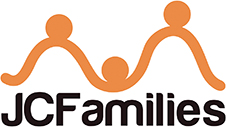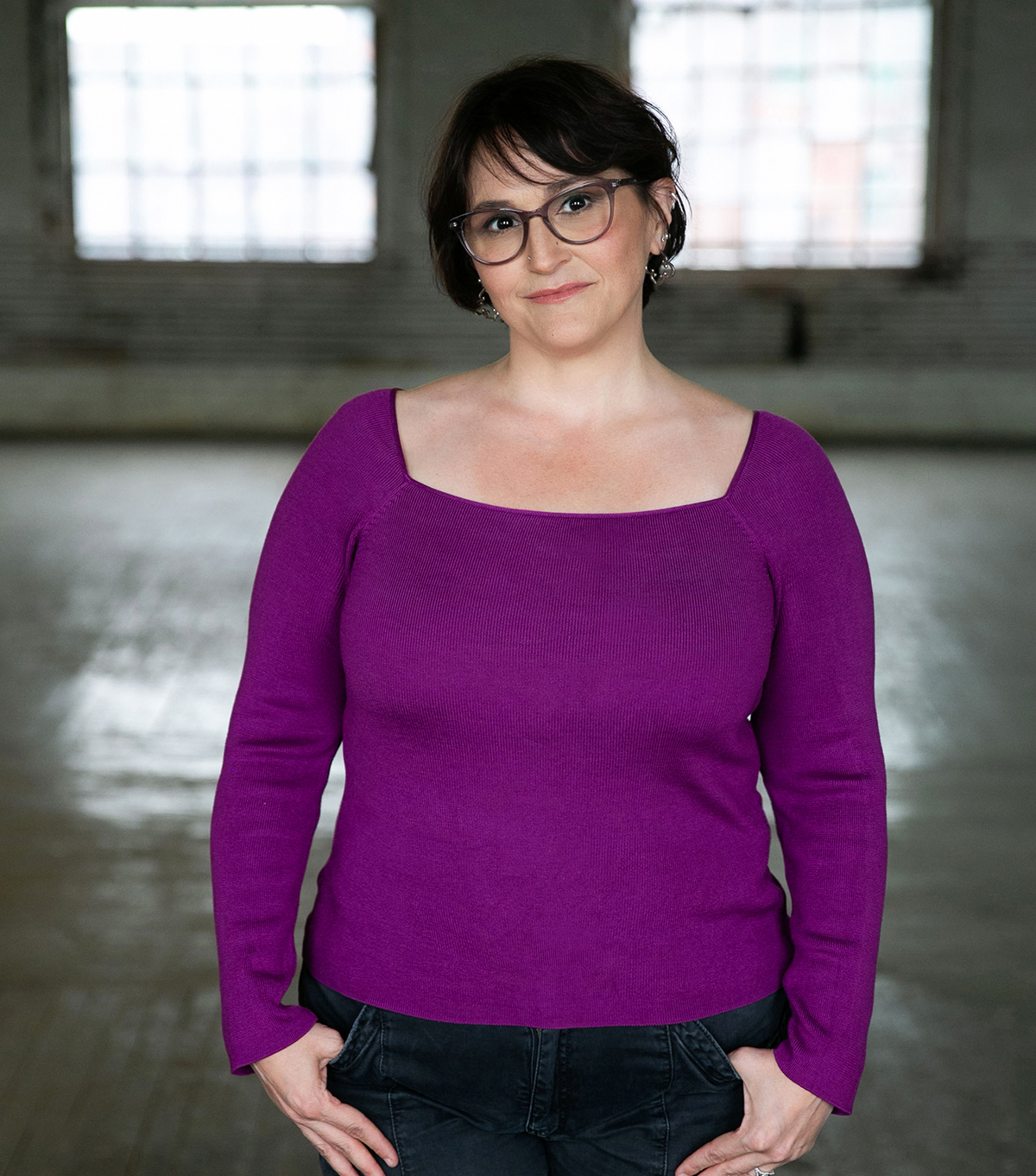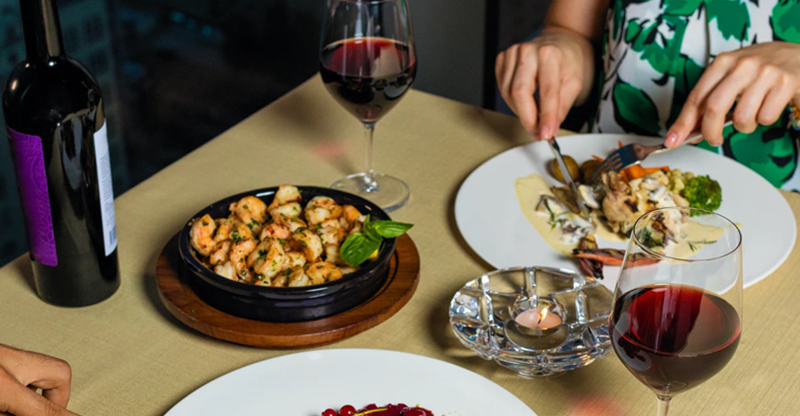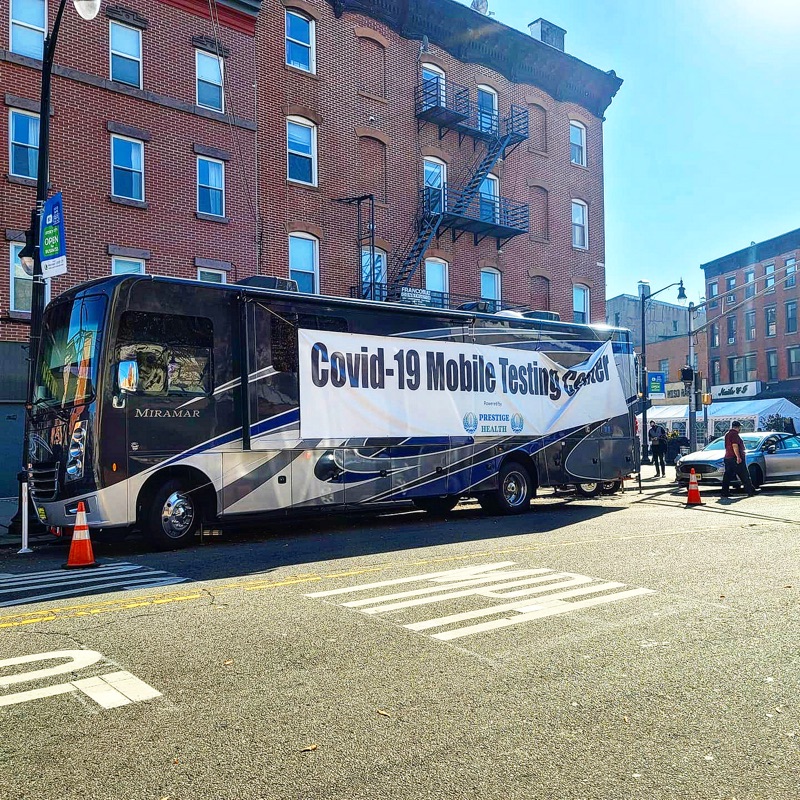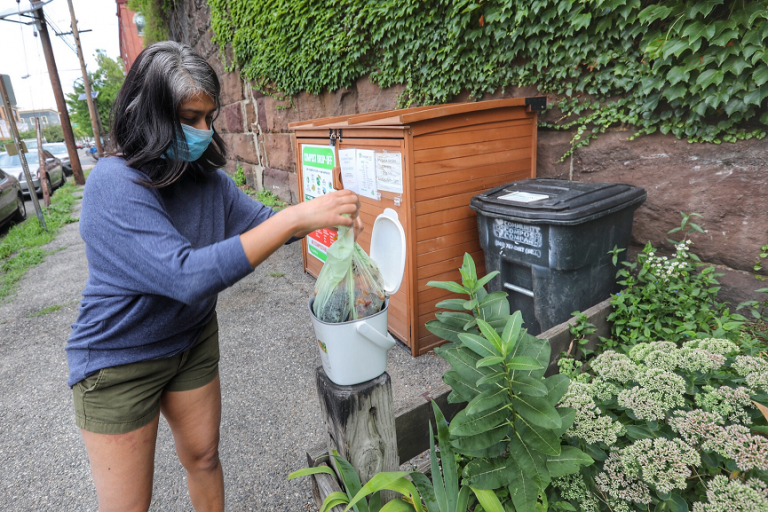JCFamilies: We haven’t met before today, but I know you’re a doctor and have a family medical practice near Grove Street. What else are you?
 Dr. Ritu: I am a daughter, I’m a wife. I’m a human being. I’ve been in New Jersey my entire life. I think of myself as the next generation of America. I have an immigrant background but an American upbringing – an old world culture and new world philosophy.
Dr. Ritu: I am a daughter, I’m a wife. I’m a human being. I’ve been in New Jersey my entire life. I think of myself as the next generation of America. I have an immigrant background but an American upbringing – an old world culture and new world philosophy.
JCFamilies: Old world from where?
Dr. Ritu: From India. My parents emigrated 40 years ago. I was born here.
JCFamilies: What do you think about Jersey City?
Dr. Ritu: My biggest concern about Jersey City is the affordability. It’s expensive to raise a family here, from the housing to simple things like day care.
JCFamilies: Do you have kids?
Dr. Ritu: I don’t.
JCFamilies: Do you want kids?
Dr. Ritu: I do.
JCFamilies: Why?
Dr. Ritu: It’s part of being a family. Also the ability to raise somebody and hope you can teach them what you’ve learned. You hope that your traditions get passed on.
JCFamilies: What would you pass on?
Dr. Ritu: Simply, to be a good person. To treat everyone how they would want to be treated. To do things that improve society.
JCFamilies: Are there lessons you would pass on?
Dr. Ritu: You know, I was just talking about being spread too thin. Everyone wants things done but they don’t necessarily want to communicate with anyone else. Everything gets done online. That heightens a lot of stress.
JCFamilies: Are you worried about that disconnect with kids?
Dr. Ritu: My worry about kids is that they’re the “Now Generation.” Everything has to be done right now, it has to be done my way. Parents are busy with day-to-day issues and don’t have time or patience to discipline… or to teach their kids about patience.
JCFamilies: What’s changed? My mom had three kids. She was busy.
Dr. Ritu: The older generation had the leisure of time. If their child was having a meltdown, they could wait it out. Life was slower. Today we’re so accessible. We can do everything from every location at every moment.
JCFamilies: What do you notice about women’s health and wellness today?
Dr. Ritu: I don’t know any woman who doesn’t juggle multiple items at one time. She’s either a wife, or a mother, or has a career, or all of those, and at the end of the day, she’s still a human being. But for many women, everyone else’s priorities come forward and she gets pushed to the back.
JCFamilies: I notice that when we define ourselves, we often use “wife” as a part of who we are, but we rarely use “husband” when describing men. What’s up with that?
Dr. Ritu: Or son! Did you know that 95% of unpaid caregivers (people who take care of adults or children) are women?
JCFamilies: Why do you think that is?
Dr. Ritu: It’s a societal pressure.
JCFamilies: You don’t think it’s built into our DNA?
Dr. Ritu: Every characteristic is a combination of genes and society. No matter which culture, at the end of the day, the onus of caretaking falls on the woman. We expect women to multitask and take on more and more and more.
JCFamilies: How does this play into your medical practice?
Dr. Ritu: Women are overburdened. We’re busy taking care of kids and our parents and our spouse that we’re not taking care of ourselves. I often have to remind women to stop talking about everyone else. “Today is about you,” I say, but they still ask about their kids’ vitamins, or their husband’s referral.
JCFamilies: I guess I’m glad I’m not the only woman who feels that pressure.
Dr. Ritu. Expectations on women are totally unreasonable.
JCFamilies: I heard you use the term “Corporate America” earlier when you were talking about a hospital.
Dr. Ritu: Because it is. Many moons ago, it wasn’t like that. But now it is. One company can own 6-7 hospitals. It’s all about the bottom line. Like a WalMart.
JCFamilies: Wow. Like a WalMart. What does that mean for care?
Dr. Ritu: From a nursing and doctor perspective, it’s disastrous. These are the people who are on the front lines of patient care, and they have no say in the decision-making. Imagine – the people who use the supplies aren’t consulted about what they need, and how much.
JCFamilies: And staffing? Is that a problem for the bottom line too?
Dr. Ritu: No one asks a doctor, “How many patients can you see per hour?” Your responsibility is given to you whether you can handle it or not.
JCFamilies: Is that why you chose to start your own practice?
Dr. Ritu: That’s the reason I’m trying to leave any medicine that’s attached to that.
 JCFamilies: What makes a small practice special?
JCFamilies: What makes a small practice special?
Dr. Ritu: The more personal realm. I know your family, I know your story. I’m not just the doc in the box. I want to be a partner in your health. That’s impossible to do in a large group setting. And we never double book patients. Or triple book.
JCFamilies: What advice do you have about child rearing?
Dr. Ritu: There are so many philosophies, and there’s a lot of misinformation. Here’s the thing: There’s no rulebook. The best thing moms can do is look at their child and make sure the things they do are suiting their child. Whether it’s discipline or feeding, there’s no set way to do it. It has to be tailored to the child. Have you heard of “Good Enough Parenting”?
JCFamilies: Tell me about it.
Dr. Ritu: It’s about trusting your gut. Follow your instincts and you’ll have stable, healthy kids. I have advice for moms too.
JCFamilies: Go on.
Dr. Ritu: Take care of yourself first. Even if it means locking yourself in the bathroom for five minutes.
JCFamilies: I like that. I can do that.
 https://www.drsmedicalassociates.com/
https://www.drsmedicalassociates.com/
Address:
115 Columbus Drive, Suite 301, Jersey City, New Jersey 07302
